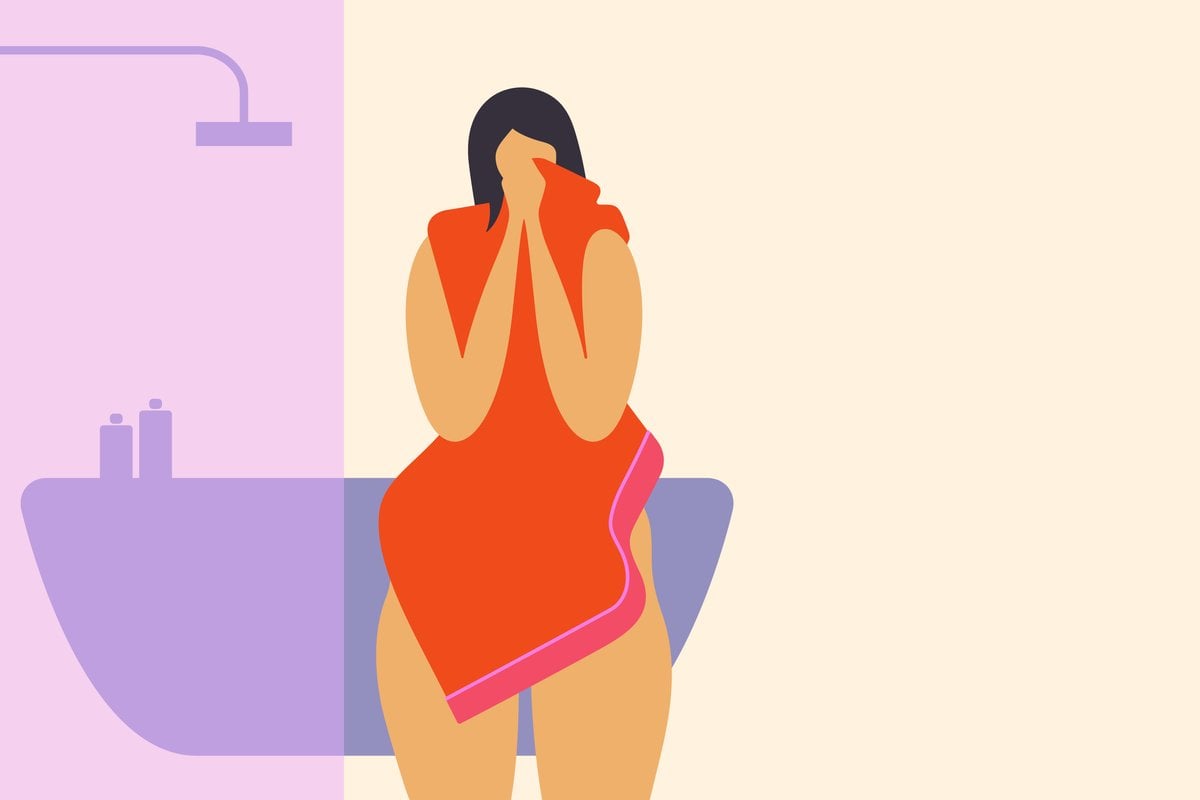
This post discusses disordered eating and anxiety and it may be triggering for some readers.
Lockdown is well and truly over for those across NSW and Victoria.
But there is a feeling I can't quite shake, and it's reminiscent to exactly how I felt this time last year, as my city opened up again.
It's what I now know to be called: lockdown body shame.
Watch How To Tell If Lockdowns Are Affecting Your Children And What You Can Do About It. Post continues after video.
We've been cooped up, confined to within just five kilometres of our home, with all other luxuries put on hold.
No dinners out with friends, no visiting loved ones who we've missed and thought about during these times, and nights out on the town? Don't even think about it.
However, for myself and those around me, as our world begins to reopen, and all that we have known for the past few months officially comes to an end - I've found myself nervous for the inevitable.
Those long-dreamed about weekends away with my mates have become a reality in record-breaking speed.

Top Comments